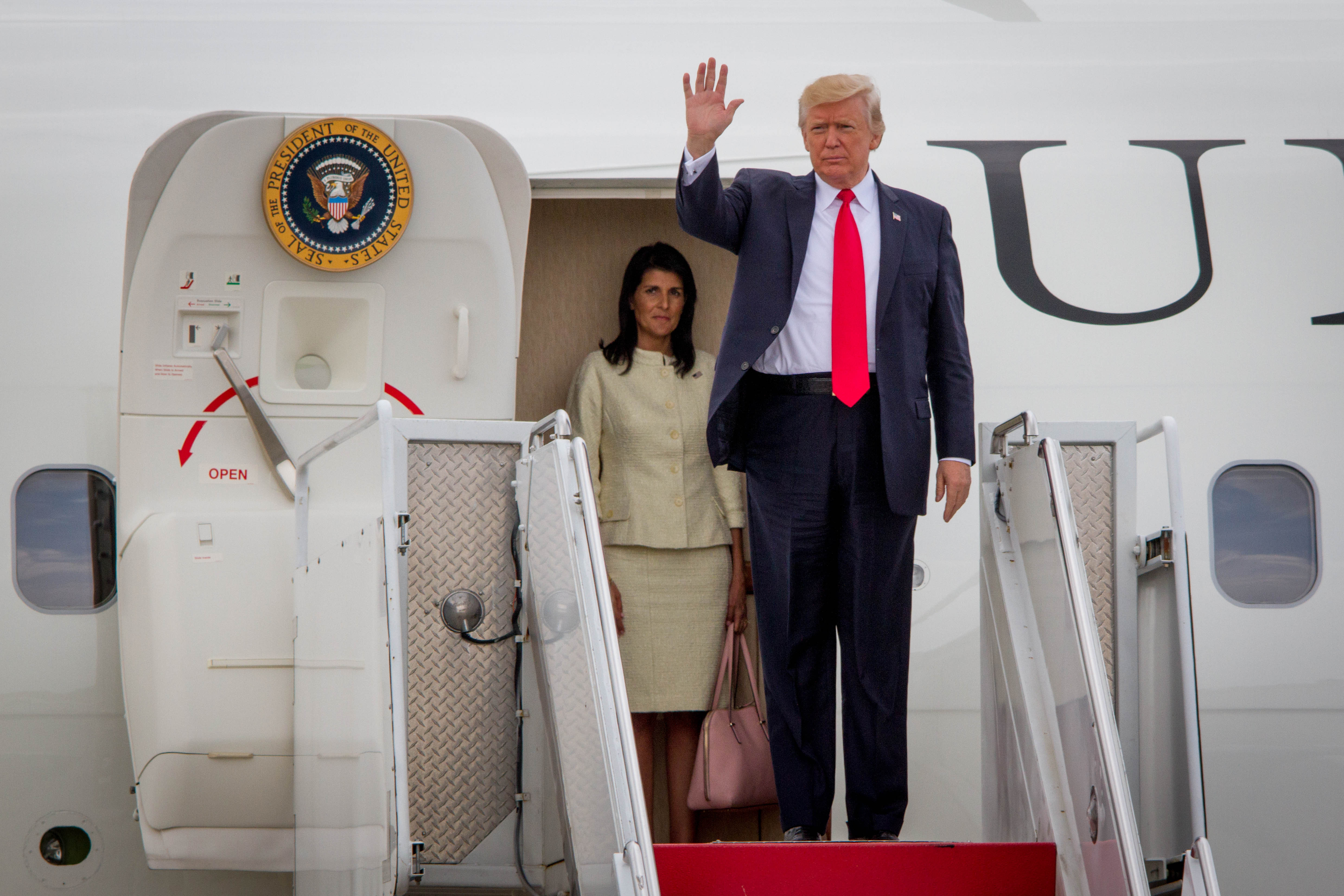Ken Griffin: The Federal Reserve can start to cut rates by June
In a world of heightened geopolitical risk, market uncertainty and concentration risks from the Magnificent Seven, perhaps the wildest thing you could say is that the economy is in great shape and a Goldilocks situation could be in play. And yet, that is exactly what Citadel’s Ken Griffin argued in a CNBC interview overnight, with good cause.
Investors would do well to take heed of Griffin’s views.
After all, Citadel made US$8.1 billion for investors in 2023. Based on its gains since its inception in 1990 (US$74 billion), it has become one of the most successful hedge funds in history.
While Griffin has not always made perfect calls – the first Citadel fund recorded 4% losses in 1994 when bonds and stocks suddenly fell in correlation (doesn’t that sound eerily familiar…) - on the whole, his consistent, mathematics-driven approach has been undeniably successful and heavily data-driven.

As Griffin has previously put it: “The key to our business, it’s a lot of research.”
He’s also been successfully investing since he was in high school. You can read more in this wire by my colleague Hans Lee.
As recently as November last year, Griffin was tipping high inflation to last for decades and another interest rate hike from the Fed. A lot can change in a few months and in this wire, I’ll explore 5 key takeouts from the interview for investors.
1. The US economy is in fantastic shape and hikes are over
The US economy staved off a recession last year and we watched the S&P 500 have a truly stellar year, courtesy of the Magnificent Seven – but what lies beneath? Late last year, a range of market commentators were tipping the US to enter a recession by mid-2024. Even now, we’ve seen many predict the first rate cuts in the US to occur this year.
Griffin says the economy is looking to be in good shape compared to September last year.
"Good payroll numbers, good GDP growth, and most importantly inflation is moderating at a pace that’s frankly better than the market anticipated," he said.
Unlike last year, he doesn’t see any more Fed rate hikes – though suggests we will start to see cuts during the middle of this year.
It could even be a ‘Goldilocks’ scenario of a soft landing and ongoing strength in the economy. He notes that the shocks will cause the sharp rise of inflation to have eased off – so even the combination of high US Federal spend and rate cuts shouldn’t be particularly inflationary.
“This government spending has got to get in check,” he said. “It's creating a bit of euphoria right now, but it will come with a hangover.”
2. China continues to be an excellent opportunity and Citadel is bolstering its position
Citadel has made no secret of its interest in China and in late December, made a $211 million non-binding offer for Credit Suisse’s securities business in China. Before this, it obtained a qualified foreign institutional investor (QFII qualification) in February, was exploring options for a license to operate in China across 2023, and hired the former head of BlackRock’s China business, Tony Tang, to helm its operations.
China is clearly no half-hearted push for the hedge fund.
Many fund managers expressed concerns over China off the back of its sluggish COVID recovery and embattled property sector in 2023 – but Griffin is not worried.
“The bigger issue is the tension between the US and China,” Griffin said, noting that both economies do need each other for survival – a rupture could cause major global depression.
He offers the following example: how long could companies like Tesla and Boeing continue to manufacture their products with a lack of access to Taiwan Semiconductors? The answer is not long.
China has established dominant market positions in solar, EVs and consumer electronics – BYD even surpassed Tesla as the world’s top-selling electric car maker in 2023. Griffin points out that Chinese EVs are far more cost-effective for US consumers than local manufacturers like Tesla (NASDAQ: TSLA) or General Motors (NYSE: GM) – but Tesla could take the opportunity to become the key autonomous software manufacturer across the car industry.

Griffin views China’s market scale as an enormous advantage – but also notes that it has positioned itself well for future innovation. China is expected to produce roughly twice the number of STEM grads a year by 2025, compared to the US.
3. We may well see President Trump 2.0 – but it’s not bad news for the economy
Griffin has been a vocal backer of Republican candidate Nikki Haley and donated to her campaign. But he believes it is going to be a narrow call between Trump and Haley.
He suspects Trump may push over the line for a few reasons: the perception of him by the US public as more powerful and ‘in charge’, his ‘martyr’ status at this point and his policies in his previous term were largely positive for business activity. In an uncertain world with significant geopolitical risks, Griffin suggests that Americans are likely to favour the candidate they view as more intimidating on a global stage – in this case, Trump.

Trump is generally known for business-friendly policies and regulations. In saying that, protectionist policies during Trump’s four years in the White House saw the American consumer pay more for goods and the manufacturing sector decline.
The market will be pricing based on expectations that Trump will implement tax cuts if he succeeds in his campaign again. This typically boosts equity markets. He could also boost the value of the US Dollar – if Goldman Sachs analysis is anything to go by. A Biden re-election is viewed as potentially meaning higher corporate taxes (negative for markets) but positive for companies in the clean energy industry given Biden’s active push with policies in this arena.
On the whole, it’s worth considering that US presidents don’t typically have a long-term impact on markets. There can be some short-term volatility in the lead-up to and immediately following an election. That is – it’s all noise and good quality investments shouldn’t be swayed too much by an election.
4. The biggest systemic risk in markets is a loss of confidence in the US financial system
Perhaps the most concerning of Griffin’s views on the markets is his prediction that we could see a global loss of confidence in the US financial market system in the next seven to ten years.
He views it as a near-certainty if successive US governments don’t bring Federal spending down – it is currently operating on a federal budget deficit of 6.3% of GDP. As Griffin points out, at some point, the American consumer will have to pay the bills on this, sooner rather than later.
There are two ways this could play out. It could be a temporary shock whereby the government resolves the situation and after some volatility in markets, we all move on. Or there’s the more catastrophic option, triggering a global recession.
On a side note, Griffin's views on the stability of the US financial system also support Citadel's efforts to diversify into the Chinese market.
5. Some of the biggest opportunities are in private markets – but this needs to change
There has been a significant shift from public to private markets in the last 20 years. As Griffin points out, IPOs were down 90% last year, the number of public companies is down and he believes there are 350 unicorn companies – that are not public and don’t intend to be public.
Griffin estimates that private equity companies represent around 2/3 of research and innovation spending in the US. Encouraging such companies to go public helps encourage job creation, a more competitive market, allows consumers to be part of the greatest companies, and in his view, translates to a more prosperous America.
After all, private markets are not highly accessible and the average investor is dependent on fund managers for exposure – some of which have minimum investment thresholds far beyond the capacity of most retail investors.
Griffin doesn’t blame private companies for staying private – he wouldn’t take Citadel public and views the regulations are too constrictive. He suggests the declining number of public companies will only continue without changing regulations – and that’s a poorer outcome for investors on the whole and the economy which runs better with a large and diverse range of publicly listed companies.
How investors can think about these points
First and foremost, Griffin is a highly disciplined investor – using mathematics and machine learning as part of his process. What the average investor can take from this is having a consistent and solid investment strategy with quality businesses is a good approach.
Finance’s only free lunch – diversification – also comes into play here. You don’t want to be too dependent on one source of returns across the longer term – the US might be looking good now but you could also be thinking ahead to the future and where opportunities could support your returns if the US does face a crisis.
China is not ‘over’ and while there are challenges to investing in this country, investors should continue to do their research and keep an open and flexible mind when it comes to investing.
Investors who want to take a closer look at private markets off the back of Griffin’s commentary may want to start their research in Livewire’s Alternatives in Focus Series here. Griffin still backs public markets however and wants to see regulations relaxed to encourage more IPOs.
Those who’d like to watch the interview – and I’d encourage you to do so given it’s an engaging and entertaining video – can watch it here.
3 topics
2 stocks mentioned
1 contributor mentioned

